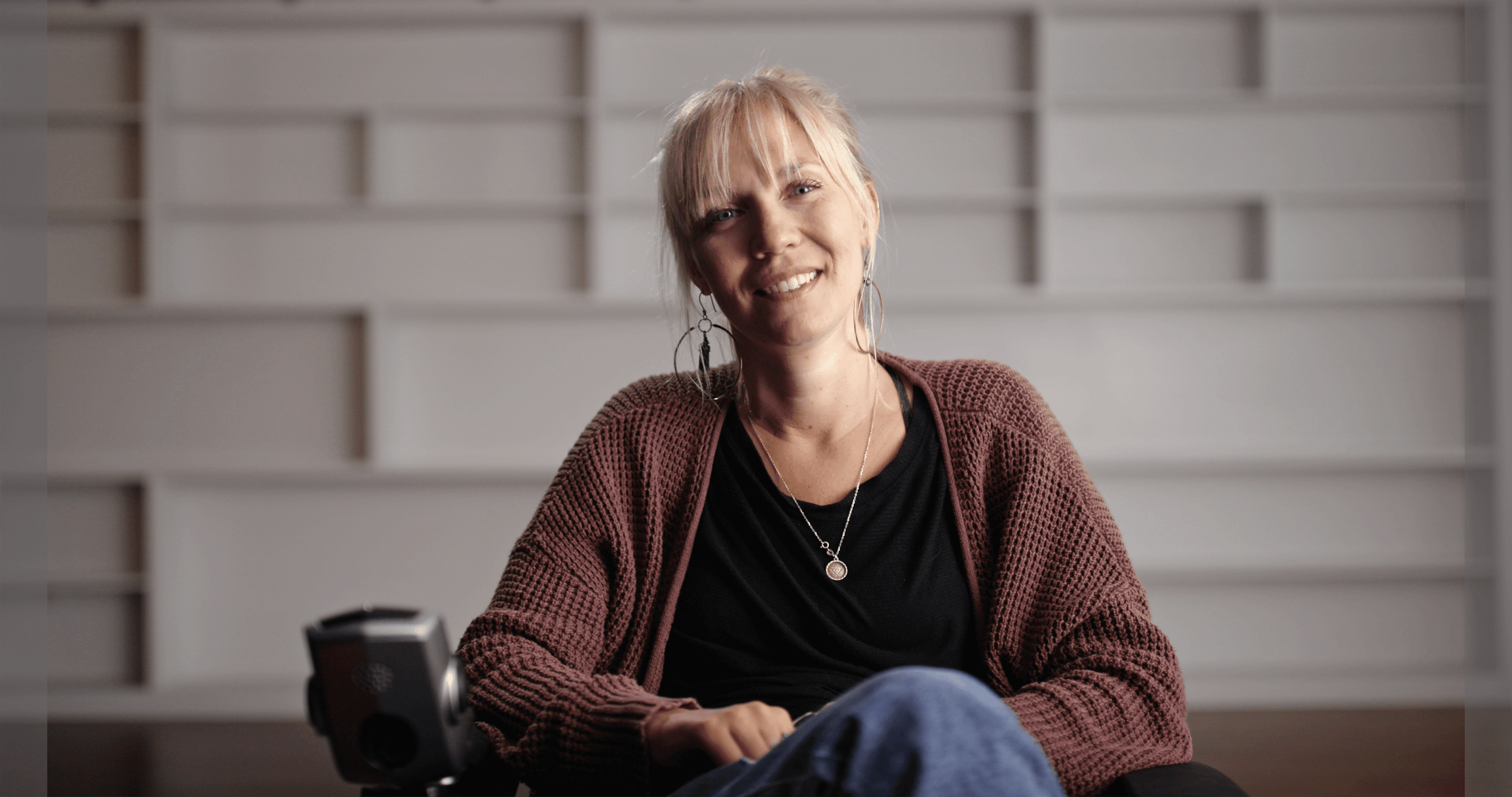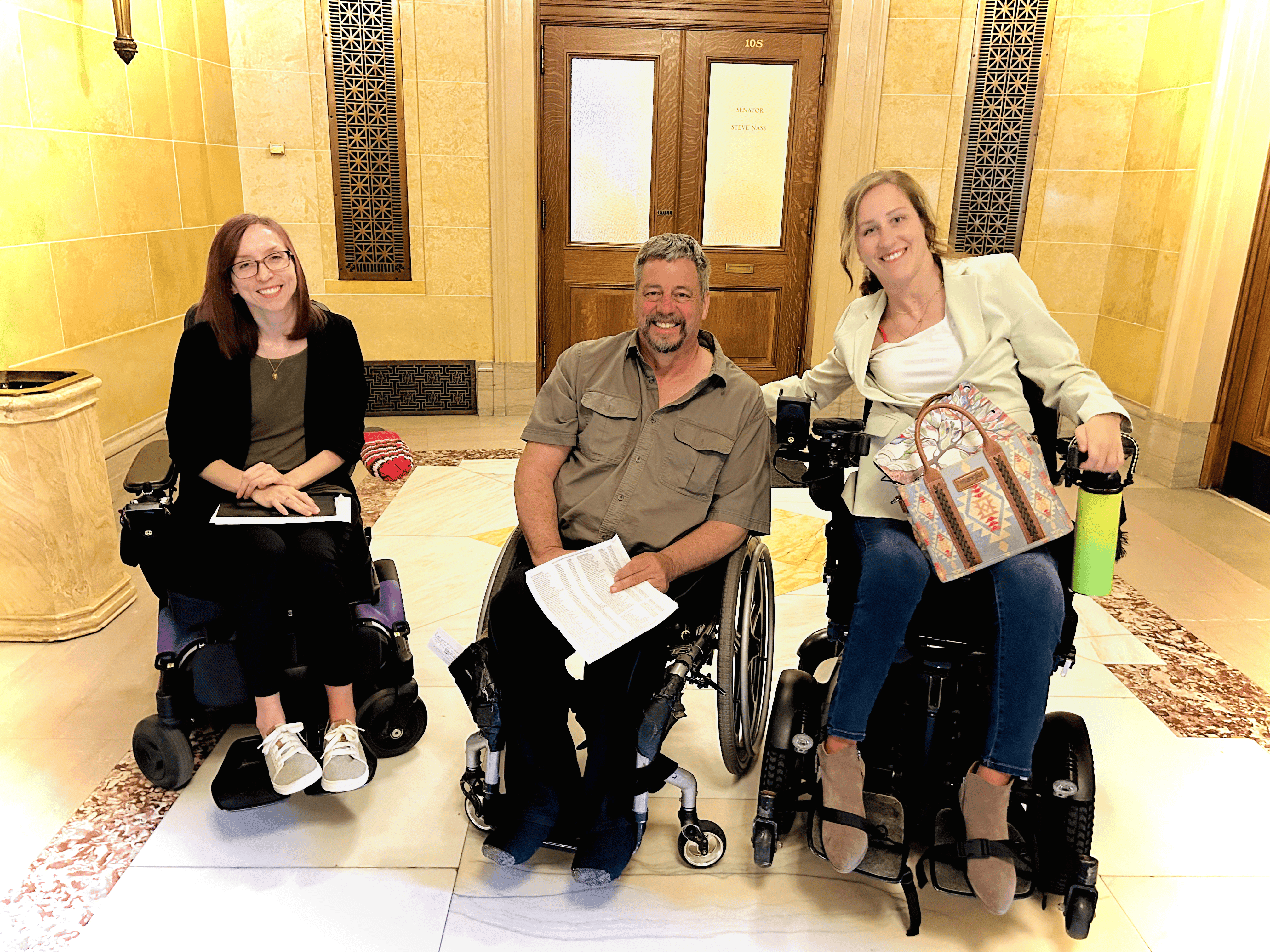
It’s official, our film, Move Me, will be having its hometown premiere at the Minneapolis St. Paul International Film Festival on Wednesday, May 18th at 4:00 pm in the Saint Anthony Main Theater in Minneapolis. This festival is both in person and virtual, so if you can’t make it in person, please buy a ticket to watch online. Get your tickets here!
During our first week of press, promoting the film, I was interviewed by a woman named Justine Kraemer, whose review of our film had me in tears. She wrote with such heart and eloquence. She saw my story in the many ways that I wanted it to be seen and understood: “Perhaps it’s not a surprise that a woman so in touch with the power of movement would understand the necessity of balance.”
I broke down after reading her words, feeling seen in a way that validated so much hard work and vulnerability. Since my injury, I have realized on a much deeper level the importance of truly being seen.
I’ve spoken a lot about acceptance and hope in the past and how many of us with an SCI work to balance those forces — about how I personally juggle them, both in terms of self-love and adaptation as a woman with a disability, and also as a person with an SCI who still craves functional recovery.
Sometimes, I get scared sharing my own seemingly dichotomous truth — that while I work daily to embrace my disabled self, I also want restored function. I’m scared that I’ll be judged or misunderstood. Scared that people within the disability community will feel that my point of view in some way threatens theirs. But living within this truth has guided me through both the storytelling process and my own healing journey.
Throughout our lives, we hold things that seem contradictory, conflicting. We question who we are and what the hell we’re doing, at least I know I do. I’m continuing to be honest with myself about how natural these feelings are, because life is complicated. We, as human beings, are complicated. We’re given so many opportunities to question ourselves, wondering if we’re doing things the “right” way. But I’ve pivoted to focusing first on what feels right for me. Since my injury, balancing acceptance and hope has been my life’s work, and as Justine so beautifully put it, I will continue to “explore the intersection of acceptance and hope, where so much of life is lived.”
This process of filming Move Me reinforced that vital need for balance, adaptation, and self-love. And through it, I found myself again. I rediscovered the artist while digging into what acceptance and hope meant for me. I felt buried parts of myself bloom anew. Broken seeds within my heart found sunlight, nourished by the soil of grief and its teachings, and watered by self-love and hope.
I love myself as a woman with a disability more than I ever thought I could, and through hard work, much-needed connection and support, that love, amazingly, continues to grow. “Disability” is a word I shied away from for quite some time, I thought it was a bad word. It innately felt like an assault — dis-ability — how could the word be good? The prefix ‘dis’ sounds negative in front of any word, but especially regarding my abilities as a human being.
But I realized we can transform this word and make it our own. This grammatical “rule” that applies to language and how we break it down can’t be applied to the complete and whole word that is Disability. It’s our word. And it represents so much more than what language or harmful social context - like ableism - has reduced it to.
I love our SCI community, our disability community, and what I continue to learn from us: our boundless strength; our tenderness; our unique intelligence, which we carry from our own different experiences; and our profound ability to teach the world, simply by being who we are.
Hearing Lawrence Carter-Long speak to this at ReelAbilities Film Festival in NYC last week reinforced and broadened my understanding of our power and importance as people with disabilities. We are more valuable to this world than we sometimes realize. We have an important story, all of us. We each have a perspective that the able-bodied population needs, so we can grow as a society and become better for each other.
While watching that panel with Carter-Long, titled, Just Do It?: The Impact of Perfectionism & Productivity on Mental Health and Disability, I could feel myself shifting, becoming more settled in my body as I sat there. I could feel my understanding of my value as a person with a disability deepening, and I was becoming more connected to myself, my community and our importance here. It was as if this panel gave me permission to say, “no, you’re not doing me any favors by listening to me, including me or seeing me. I am needed here, and you have something to learn from me.”
The systems of ableism cut deep within our disability community, and beyond. I feel affected by them daily — when I can’t get into an establishment, when I don’t get invited because “dealing” with my disability seems too hard, when I apologize for my needs. It’s exhausting working through the deep-rooted systems that tell us we are too much work, we don’t belong here, or we’re not enough. The more I acknowledge the presence of ableism, the more I feel equipped to dissect it and work through it — combat it, both internally and externally, and grow in love through that examination.
Making this film, weaving hope and acceptance together, gave me more freedom to explore who I am as I continue to adapt and grow. My desire for functional recovery is for me, not for anyone else. Regaining sexual function could add to my quality of life. Hand function could give me more independence. I miss these things that I have lost, and even as my acceptance and self-love deepen, I still feel that loss, and that’s ok.
What’s most important to me, is that I know I don't need those things to feel like me, to love me, and to know my worth. That’s real. That’s my story.
I’m lucky to be one of the few people with a disability who was able to tell my story. I hope Move Me gives people hope. I hope people give themselves permission to heal and grow beyond what they thought is possible. I hope we show up for each other more. And I hope people feel seen.
I’m grateful for the many people with disabilities who have fought, shared and lived before me; for Judy Heumann who pioneered the civil rights movement for people with disabilities, and for Jim LeBrecht, who was part of that movement and who told their story so beautifully in Crip Camp. Jim’s support and work on our film was the icing on the cake.
And there are so many badass activists who made it possible for me to experience this life the way that I do and tell my story because of their efforts. I never thought I’d be so proud to call myself disabled, because it means I’m a part of a community that carries valuable insights and wisdom on life, and a fierceness that I had never known and that I continue to learn from.
Which is all to say: Tell your story, fly your freak flag, because I promise you — it matters, and there’s magic there.
I know this has been a long time coming. Both the Move Me production team and myself wouldn’t be here without your support.
Finally, to everyone who donated to this film, thank you so much! We did this together. We are so grateful to U2FP for their continued support and partnership. So, from the bottom of our hearts, thank you.

















